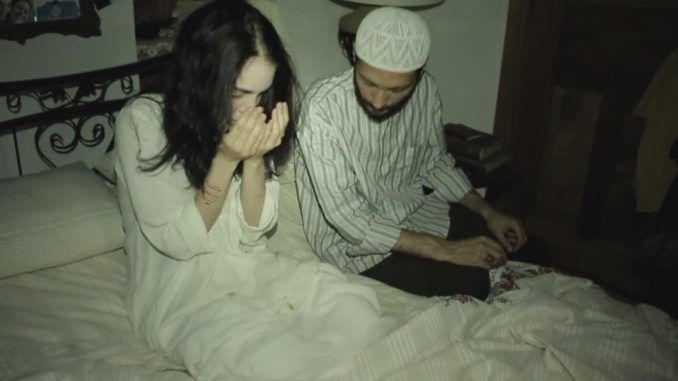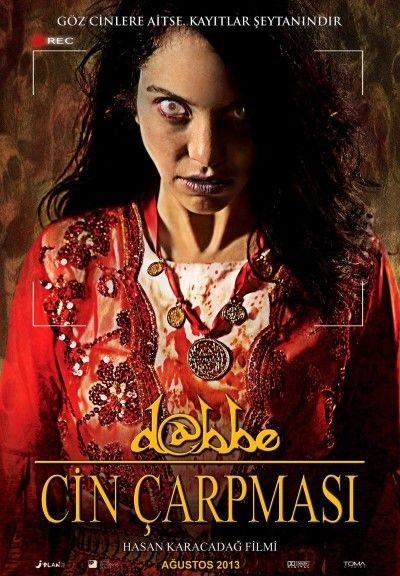
Rating: C+
Dir: Hasan Karacadag
Star: Irmak Örnek, A. Murat Özgen, Cansu Kurgun, Anil Özkan
a.k.a. Dabbe: Cin Çarpmasi
While the fourth entry in the franchise, this was actually the first I watched. I realized it was on Netflix just three days before it left the streaming service, so decided to start there. I think this is fine, because it doesn’t appear particularly to tie in to the previous trilogy. There is a brief discussion of the Internet being a sign of the apocalypse, which was initially a theme of its predecessors. But this lacks any significant technological trappings and instead falls somewhere between The Exorcist and The Blair Witch Project. Now, 134 minutes of found footage is not far from my definition of hell, so the reasonable grade here is an over-achievement.
The main camera wielder is Ebru (Örnek), a psychiatrist who is investigating exorcist Faruk Akat (Özgen). She is very much in full Scully mode, suspecting Faruk of being a charlatan, and believing everything has a rational explanation. To prove him a fake, she requires him to treat a case of her own choosing. This is back in the village where she grew up, and is her old friend Kübra (Kurgun), who has been behaving extremely strangely since stabbing her fiancé to death at their engagement party. Even before they arrive, ominous things begin to happen, and they’re not exactly greeted warmly by the locals either. There’s also the abandoned village of Kibledere nearby, whose presence casts a long shadow over the population.
 You can probably more or less work out how things proceed from here. Faruk’s efforts to exorcise the djinn which is possessing Kübra, seem initially to work, then she relapses. Ebru clings on to her scepticism, well past the point any reasonable person would be thoroughly convinced. The truth about why Kibledere was almost entirely depopulated is revealed. And, of course, there is an awful lot of shaking of the camera whenever anything interesting or paranormal seems to be happening on screen. However, there are still sufficient creepy moments present, such as the so-called “toilet curse”, which initially seems laughable, but turns out to be much gnarlier. For buried under the toilet, Faruk disinters a slew of occult artifacts and entrails, including an entire cow’s head.
You can probably more or less work out how things proceed from here. Faruk’s efforts to exorcise the djinn which is possessing Kübra, seem initially to work, then she relapses. Ebru clings on to her scepticism, well past the point any reasonable person would be thoroughly convinced. The truth about why Kibledere was almost entirely depopulated is revealed. And, of course, there is an awful lot of shaking of the camera whenever anything interesting or paranormal seems to be happening on screen. However, there are still sufficient creepy moments present, such as the so-called “toilet curse”, which initially seems laughable, but turns out to be much gnarlier. For buried under the toilet, Faruk disinters a slew of occult artifacts and entrails, including an entire cow’s head.
Having been braced for something of an endurance test, I didn’t feel the running time was excessive. The journey from the opening credits to the final, almost obligatory “based on a true story” caption, has a good number of twists and turns, though not all the plot elements feel necessary. For example, much is made of “7175” popping up: when its significance is explained, my reaction was “Is that it?” It’s a long walk for a limited return. In general though, Karacadag does a decent job of managing the pace, and sustaining interest, with additional pieces of the jigsaw popping into place when necessary. You won’t see the whole picture until the very end, and it’s not a pleasant one – especially for Ebru.
